CAR Votes On New Constitution As Touadera Eyes Third Term
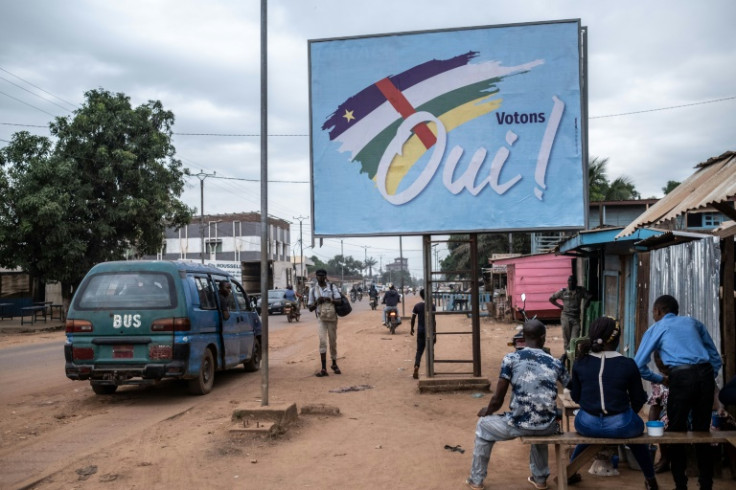
The Central African Republic voted on Sunday in a referendum on a new constitution that would allow President Faustin-Archange Touadera to seek a third term in a country which has endured several coups.
In 2020 Touadera won a second five-year term, after a vote interrupted by several incursions by armed rebel groups. He also had to overcome allegations of fraud.
His rivals now charge that he wants to remain "president for life" -- under the increasingly visible protection of private Russian mercenary group Wagner, which first deployed to the CAR in 2018.
The country of 5.5 million people is one of the world's poorest.
Some 1.9 million people were called on to cast their ballots at polls which closed at 5:00 pm (1800 GMT), an hour later than initially planned after some delays in opening stations.
Provisional results are not expected for eight days, while the constitutional court is scheduled to publish the definitive outcome on August 27, according to the national electoral authority.
Attendance was low at a polling station in downtown Bangui, the capital, where Touadera cast his ballot in the morning, an AFP journalist witnessed.
"I hope that the government carries out everything written in the new constitution and that the 'yes' side will win by 99 percent," said Albin Gerard Nzoni-Gba, a civil servant.
The proposed new constitution would extend the presidential mandate from five to seven years and abolish the two-term limit.
Opinion polls suggest the "yes" vote is likely to triumph.
"We know that the 'yes' camp is going to win -- but we shall put the emphasis on participation," national assembly vice-president and presidential majority spokesman Evariste Ngamana told AFP.
The main opposition parties, civil groups and armed rebels have all called on voters to boycott the exercise.
"There is no point because the results will be rigged anyway, so it's best to stay at home," said Euloge Ngarisso, an employee of a phone company.
Voters had to choose between a white ballot for "yes" and a red for "no".
Several told AFP journalists that they were encouraged by election officials to choose "yes".
"As soon as we registered to vote, they would say to take the white ballot instead of giving both ballots, I don't think that's normal," said Richard Nganakwa, a resident of Bangui.
Such incidents were reported at several stations.
"I'm observing this vote, and it hurts me to see the district chiefs, the observers... and the electoral agents only indicating 'yes' ballots to voters," said Joseph Bendounga, a well-known opponent to the reforms.
The opposition had already complained about the lack of an up-to-date electoral register and said institutions tasked with guaranteeing a free and fair vote are not independent.
Voting took place without security incidents, across a vast territory where armed groups are engaged in guerrilla warfare.
Touadera has announced, meanwhile, that Russia and Rwanda, two states whose influence has been very much on the rise in the CAR in recent years, would be "supporting" security forces during the vote.
AFP journalists saw police and soldiers deployed in the streets, as L-39 Albatros fighter jets -- recently delivered by Russia -- flew low over the capital for part of the day, along with army helicopters.
A Wagner-linked source said earlier in July that several hundred of the Russian fighters would be in place for the poll.
"It's a vote being pushed by the Russians and organised with their help -- the president of the constitutional court and of the national electoral body have been invited to Russia and doubtless have received instructions," a diplomatic source told AFP.
Human Rights Watch says Russian embassy personnel in Bangui visited the former president of the constitutional court, Daniele Darlan, last year to ask for advice on how the constitution might be amended to enable Touadera to stay in power.
HRW regarded this as a Russian attempt to influence the political process in the CAR.
But in January, Darlan was ousted.
Government officials have cajoled and threatened referendum opponents, says HRW, and authorities also banned an opposition rally in the capital in a bid to keep a lid on hostility to the poll.
Since December 2020, hundreds of Wagner fighters and Rwandan troops have been deployed to face an offensive led by an alliance of the country's most powerful rebel groups, which have found themselves pushed into rural areas.
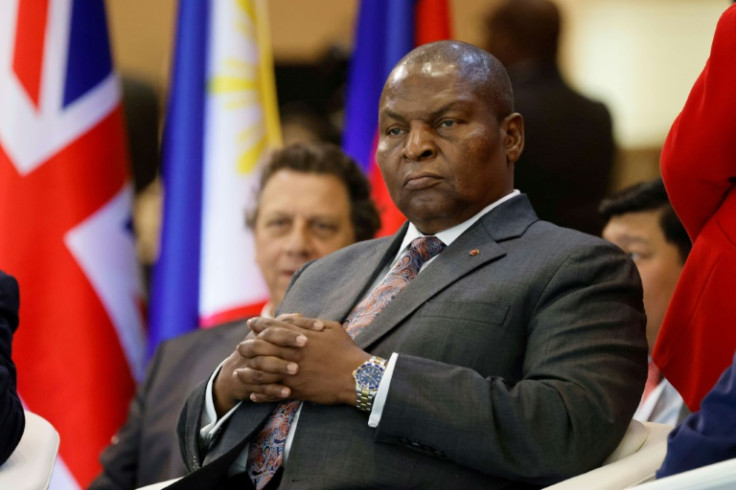
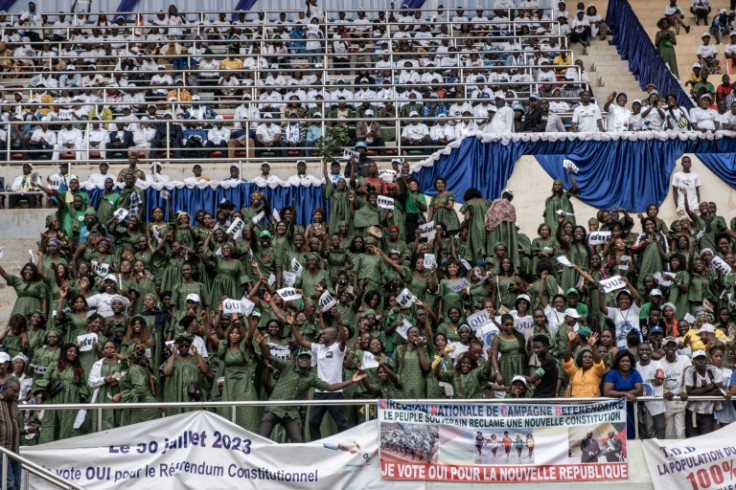
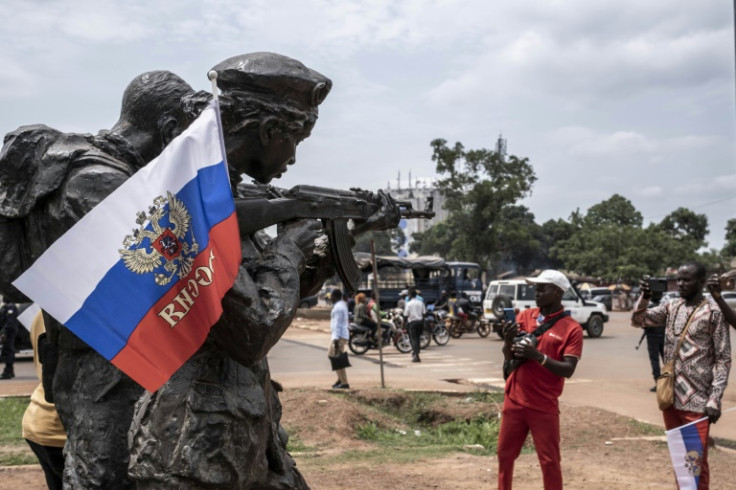
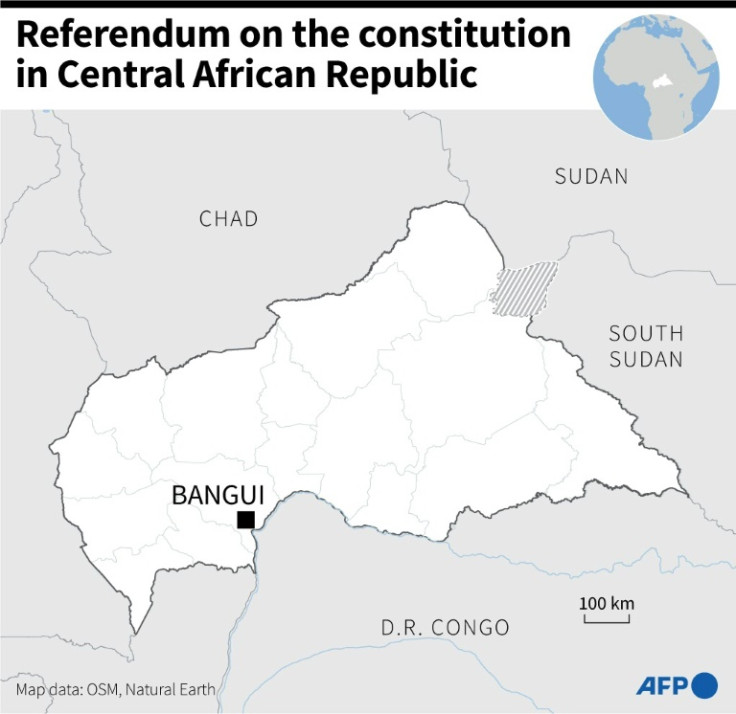
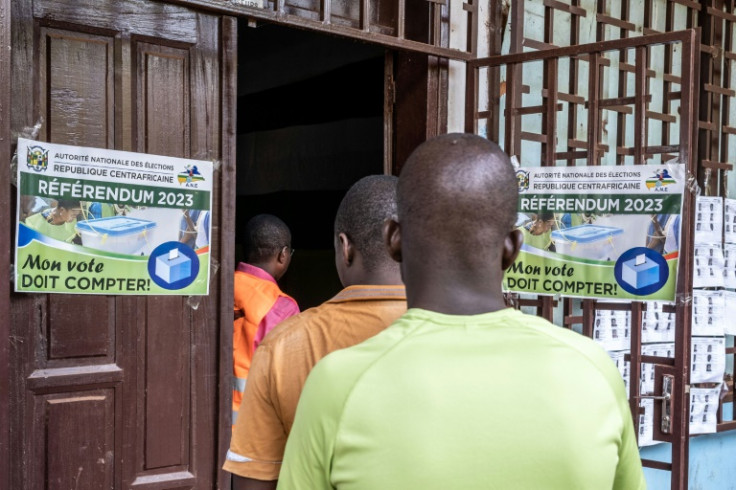
© Copyright AFP 2025. All rights reserved.




















